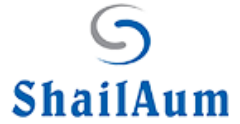Preparedness of Maintenance Team bears Fruit
Are you one of the producers with maintenance team which is not able to understand the maintenance requirements and operational parameters of the equipments they run? Is the drop down in your profit margins triggered by inefficient maintenance team? If so, plunk yourself right down and read on.
Maintenance Team Preparation
To maintain good returns in operations maintenance, team should be efficient enough to fix any issue as soon as possible to not to let the work process halt. Efficiency of maintenance team totally depends upon the knowledge about the equipments to which they are assigned. In reality, however, the level of equipment knowledge exhibited by the plant employees is found to be unsatisfactory to bring out effective results.
Needless to mention that untrained or personnel with inadequate knowledge on equipment which they work make business suffer a lot. Poor practices, mishandling of equipments, neglect preventive measures, frequent overloading of equipments and erratic use of connected power could be some of the impacts brought about by untrained personnel. The list and percentage of faults may very from plant to plant.
Each producer has different plan of action to achieve targets. The cost of unnecessary replacement of equipment parts and revenue lost due to downtime should not be balanced with profit earn each year. But this is seldom done by most of the producers. Financially, they would have earned far better than they actually do.
Good Training
In few extreme cases, malpractices and incorrect operational procedures become imbibed in an organization to such an extent that employees become hopelessly dependent on them. And thus, these habits are defended, and correct methods are resisted or taken on with disinterest. To avoid any trickling down of misinformation from one employee to another , it is required to set up training sessions from time to time to keep employees knowledge update. Organizations need to be rigid and forceful to make employees attend training sessions to avoid flow of poor maintenance habits and knowledgeable maintenance personnel.
When an aggregate producer purchases a new piece of equipment from a local distributor or from the manufacturer, the purchase usually includes assistance during the installation and startup. The manufacturer provides detailed installation drawings, instruction manuals and a replacement parts book.
But in an aggregate plant, a personnel change is becoming a common issue. A new maintenance employee or operator may be trained by a precursor whose knowledge, or credibility, may be suspect. Adding or replacing an unfamiliar part of a machine without any manufacturer assistance or guidance at startup could lead to wear and tear on the machine itself. Maintenance and operating procedures that are correct for one brand or equipment may be completely wrong for other. The solution to such problems is continuous professional training for operating and maintenance teams who work on these equipments.
Organizations which have invested in technical training have felt the returns in the form of dividends. Many producers who understand the demand of the market and need for training maintain supervisors and foremen for equipment training and seminars often target to spend training cost on employee who can later on convey all the information to the rest of crew. Unfortunately this ideology seldom works. It gets very difficult for an individual to absorb all the knowledge in such a short duration, let alone passing it on to others in a proper effective manner. That’s why seminars hosted in current scenarios are provided with printed seminar catalogues or CDs.
Huge benefits that can be reaped from the attendee’s employer who attends a well-organized and well trained seminar are:
- Improved awareness and knowledge of the equipment
- Decreased equipment downtime
- Increased productivity
- Decreased maintenance and repair costs
Recent Posts
Categories
 Improving Energy Efficiency of MotorsImproving Energy Efficiency of Motors There are plenty […]
Improving Energy Efficiency of MotorsImproving Energy Efficiency of Motors There are plenty […] Conveyor Belt Rip RepairConveyor Belt Rip Repair Conveyor Belts used in […]
Conveyor Belt Rip RepairConveyor Belt Rip Repair Conveyor Belts used in […] Quick Vibrating Grizzly Feeder Maintenance PlanQuick Vibrating Grizzly Feeder Maintenance Plan How to […]
Quick Vibrating Grizzly Feeder Maintenance PlanQuick Vibrating Grizzly Feeder Maintenance Plan How to […]
WhatsApp us



